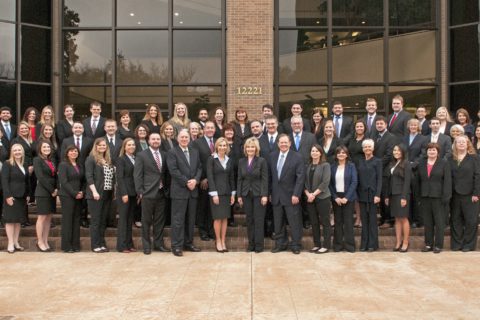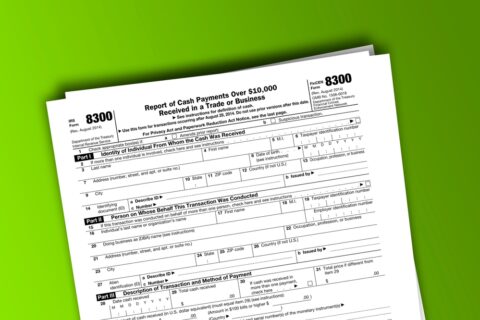On July 11, 2019, the IRS and Treasury released final regulations removing Section 1.451-5 of the Income Tax Regulations as a result of the changes made to Section 451 under the 2017 tax reform known as the Tax Cuts and Jobs Act (TCJA). Prior to the issuance of these regulations, Treas. Reg. Section 1.451-5 previously allowed accrual-basis taxpayers to defer advance payments for inventoriable goods for up to two years. As part of the TCJA, Section 451(c) was added to the Internal Revenue Code codifying the one-year deferral method under Rev. Proc. 2004-34. In October 2018, the IRS and Treasury released proposed regulations REG-104872-18 proposing to remove the two-year deferral method available under Treas. Reg. Section 1.451-5. The final regulations adopt the proposed regulations with no modifications. Accordingly, taxpayers that are presently using Treas. Reg. Section 1.451-5 to defer advance payments are advised to take corrective action to change their method of accounting to a different method for taxable years ending on or after July 15, 2019.
Overview
The final regulations remove Treas. Reg. Section 1.451-5, and its cross-references, which relate to the treatment of advance payments for goods and long-term contracts under Section 451 of the Internal Revenue Code. Section 451 provides the general rules for the timing to recognize income as a cash or accrual basis taxpayer. Under Treas. Reg. Section 1.451-1, accrual method taxpayers must include items of income in the taxable year when all the events have occurred that fix the right to receive the income and the amount of the income can be determined with reasonable accuracy (the “all-events” test).
Although neither the Internal Revenue Code nor the regulations provide specific rules for determining when a taxpayer has a fixed right to income, the courts and the IRS have generally concluded that the all-events test is met at the earliest of (1) required performance by the taxpayer; (2) the date a payment becomes due; or (3) the date the payment is received by the taxpayer. Thus, under the all-events test, an accrual basis taxpayer generally must include advance payments in income in the year of receipt, even if the amount has yet to be earned and/or is deferred for financial statement purposes.
Prior to the TCJA, Treas. Reg. Section 1.451-5(c) provided an exception to this general rule by permitting an accrual method taxpayer to defer substantial advance payments (as defined in Section 1.451-5(c)(3) of the regulations) for inventoriable goods up to the second taxable year following receipt of the substantial advance payments. Substantial advance payments received under an agreement are recognized for tax purposes as they are included in gross receipts for financial statement purposes. Any remaining advance payment not yet included in taxable income is included in the second taxable year following receipt of the advance payment.
Under the TCJA, Section 451(c) was added to codify the treatment of advance payments for accrual basis taxpayers for years beginning after December 31, 2017. Section 451(c) generally requires a taxpayer to include any advance payment in income in the year of receipt or make an election to (1) include any portion of the advance payment in income in the taxable year of receipt to the extent the amount is taken into account as revenue in a taxpayer’s applicable financial statement, and (2) include the remaining portion of the advance payment in income in the following taxable year. This election to defer advance payments of goods and services under new Section 451(c) is similar to the one-year deferral method provided in Rev. Proc. 2004-34, which presently remains applicable under Notice 2018-35.
In the Joint Explanatory Statement issued with the TCJA, the government explicitly noted that the new Section 451(c) was intended to override any deferral method provided by Treas. Reg. Section 1.451-5 for advance payments received for goods. Thus, taxpayers that are currently on Treas. Reg. Section 1.451-5 must change to another proper method (e.g., to include advance payments in income in the year of receipt or to defer advance payments in accordance with books for up to one year under Rev. Proc. 2004-34).* The final regulations clarify that a taxpayer changing from the two-year deferral method to another method of accounting for advance payments is subject to the general rules under Section 446, therefore necessitating the preparation and filing of a Form 3115, Application for Change in Accounting Method.
Rev. Proc. 2018-31, the most recent procedural guidance governing automatic consent method changes, currently allows taxpayers to file an automatic Form 3115 to change to either the full inclusion method or the deferral method for advance payments under Rev. Proc. 2004-34. Under Section 16.07(2) of Rev. Proc. 2018-31, the general eligibility rule precluding taxpayers from filing an automatic method change if a prior method change was filed for the same item within a five-year period is waived for the taxpayer’s first or second year ending on or after May 9, 2018. This waiver may be especially helpful for taxpayers that filed a method change in recent years to use the two-year deferral under Section 1.451-5 of the regulations and must now change to a different method imminently.
Interested in how this may impact your situation?
Contact Us
* Note that there is still substantial uncertainty as to whether taxpayers can use other deferral provisions outside of Section 1.451-5 of the regulations to delay the recognition of advance payments. See Artnell Co. v. Commissioner, 400 F.2d 981 (7th Cir. 1968) and Tampa Bay Devil Rays, Ltd. v. Commissioner, 84 T.C.M. 394, 399 (2002).
Latest News
On June 9, the IRS released Announcement 2022-13, which modifies Notice 2022-3, by revising the optional standard mileage ...
At the tail end of 2021, the Internal Revenue Service (IRS) released new Schedules K-2 and K-3 effective ...
This information is current as of Sunday, November 21, 2021. On Friday, November 19, 2021, after the Congressional ...
HM&M Updates
DALLAS, Dec. 11, 2024 – Springline Advisory, a trailblazing financial and business advisory firm, is proud to announce its partnership ...
Last month, Senior Manager, Pearl Balsara was invited to speak at the 2023 FPA DFW Annual Conference in ...
We are pleased to announce the winners of the 2022 HM&M Excellence Awards. Ronna Beemer, Keith Phillips, and ...









